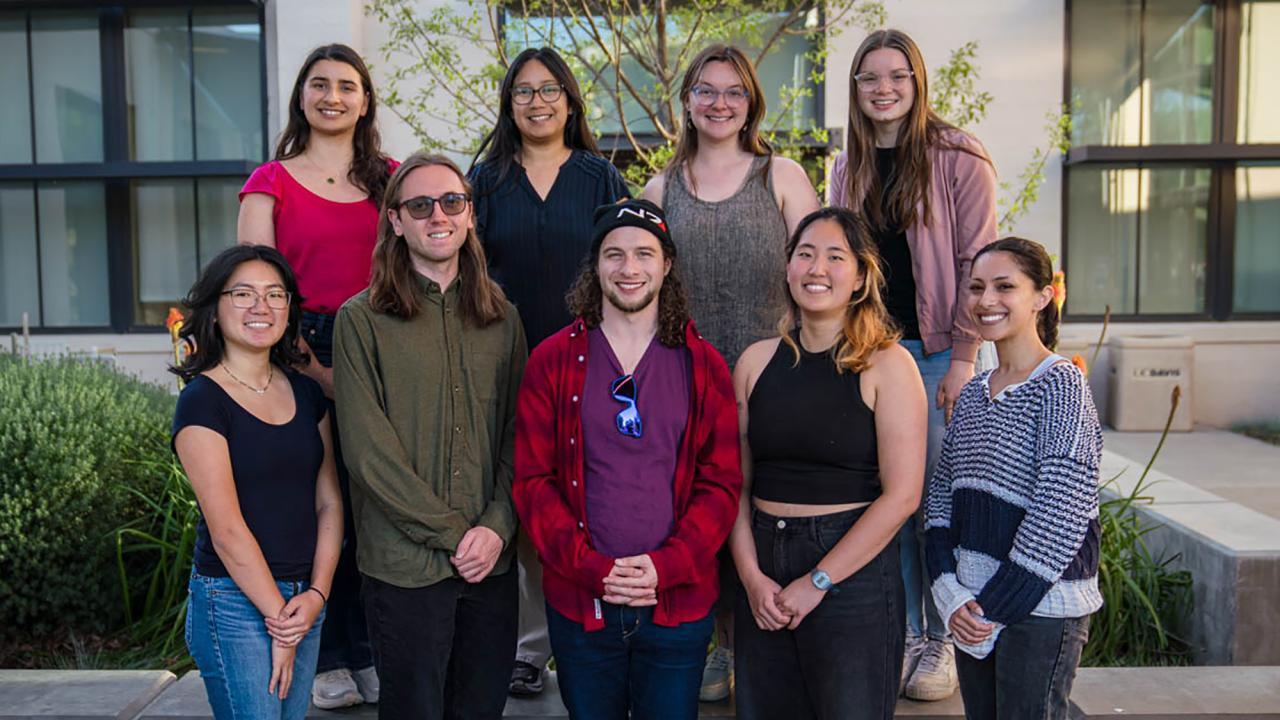
Cultivating Inclusive Environments: UC Davis DEIJ Leader Fellowship Projects in Action
Diverse projects drive equity and inclusion in academic pursuits
The UC Davis College of Biological Sciences champions Diversity, Equity, Inclusion, and Justice (DEIJ) through the Graduate Student DEIJ Leader Fellowship program. Now in its second year, the program empowers enterprising graduate students committed to enhancing DEIJ within the CBS community by supporting projects aimed at fostering a more inclusive academic environment.
“The second consecutive cohort of DEIJ Fellows has maintained the outstanding caliber of commitment, innovation and collaboration that gives this program its impact,” said Ted Powers, executive associate dean of academic affairs, and the leadership liaison to the college’s committee for diversity, equity, inclusion and justice. “As always, I am very proud of the accomplishments of CBS graduate students in the DEIJ space. Each of this year’s fellows has done great work on projects that will help the college foster and support a culture of inclusivity and belonging.”
Among this year’s distinguished recipients of the DEIJ Leader Fellowship are Tess Leathers, Maribel Anguiano, Elijah Kofke, Hee Jin Chung, Devin Romines, Darien Satterfield, Selin Gümüşderelioğlu, and Tracie Hayes. Their projects cover a diverse range of initiatives, from making academia more accessible for early scientists to planning ethical and inclusive fieldwork.
Leathers, a fourth-year Ph.D. candidate, aims to alleviate financial burdens for early-stage graduate students and inspire elementary students from underrepresented backgrounds to pursue STEM. Anguiano, a neuroscience Ph.D. candidate, focuses on making STEM graduate programs more accessible through shareable information.
Kofke, Romines, and Gümüşderelioğlu are committed to raising awareness about non-academic career paths, supporting LGBTQ+ undergraduate STEM students, and ensuring lasting progress in DEI efforts through various innovative projects. Satterfield's project centers on planning inclusive and ethical fieldwork, while Hayes and Chung seek to improve the culture and support systems within their graduate groups through a comprehensive climate survey.
These dynamic projects exemplify the dedication of CBS graduate students to advancing DEIJ principles and fostering a more inclusive scientific community. This year’s fellows program will culminate in an open-house event highlighting their achievements on Monday, May 13 in Walker Hall Gibeling Conference Room from 2:00-5:00pm. The event is open to the public and free to attend. RSVP here.
Meet the 2023-24 Graduate DEIJ Leader Fellows
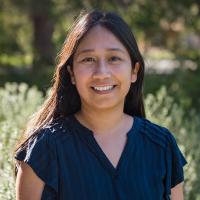
Maribel Anguiano
Neuroscience
Project Title: Making STEM graduate programs more accessible through shareable information
I am a Ph.D. candidate studying the molecular makeup of circuits involved in reward-seeking and social behaviors. Being a first-generation Mexican American and the first in my family to attend college, I have experienced the value of programs that increase diversity, equity, inclusion and justice in science fields. I am committed to helping the next generation of diverse scientists thrive as they enhance the progression of scientific discovery. As a graduate student I am involved in the Neuroscience Initiative to Enhance Diversity (NIED), Graduate Student and Postdoctoral SACNAS Chapter (GSPD SACNAS) and have organized and run programs that aim to introduce undergraduate students from historically marginalized communities to different careers in STEM. These full day workshops consist of graduate student panels, lab tours, and research presentations. My project aims to create a template that graduate students and programs can use when starting their own workshops. I hope that the creation of this guide will lead to more graduate programs sharing their research and experience with undergraduate students from underrepresented backgrounds.
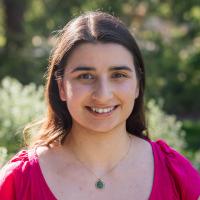
Selin Gümüşderelioğlu
Biochemistry, Molecular, Cellular and Developmental Biology
Project Title: Recording keeping for lasting progress in DEI: (BMCDB) Diversity, Equity, Inclusion Committee (DEIC) Handbook
I am a fifth year Ph.D. candidate who is passionate about basic cell biology research, and about teaching, mentoring and community building. I have been involved in the BMCDB DEIC for the past four years and I am currently serving as one of the co-chairs of the committee. As a CBS DEIJ fellow, I am putting together a BMCDB DEIC handbook that will contain: 1) information on the DEI resources available on campus, 2) a list of committee guidelines indicating how long each member and lead is expected to serve, and what their roles and responsibilities are, and 3) a guide on how each event associated with the committee was organized, including information on funding and advertising, and a feedback section on the elements that worked and those with room for improvement. This handbook will ensure continuation of the BMCDB DEIC and be a resource for the general CBS community. By setting expectations, providing guidelines, and keeping well documented records, we can add to the value of the work accomplished and aim for long-lasting progress in DEI.
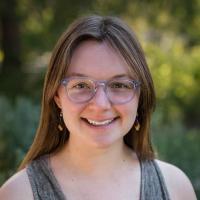
Tracie Hayes
Population Biology
Project Title: Climate Survey for the Population Biology Graduate Group
I am a fifth-year graduate student studying the ecology of organisms that rely on ephemeral resources, and I do most of my work with burying beetles along the California coast. I am interested in DEI efforts because I believe increasing and retaining historically marginalized groups in the life sciences is crucial to the success and growth of evolution and ecology as disciplines. For my project, I am developing and circulating an anonymous climate survey to my graduate group to identify issues we want to address in our community, and identify what is working within the community. I love my graduate group and I want to continue to improve the culture concerning mentor-mentee relationships, student belonging, DEIJ initiatives and graduate funding. With the results of this climate survey and in collaboration with our Student Diversity Committee, I hope to prioritize student needs in conversations and make plans to address those that are not being met.
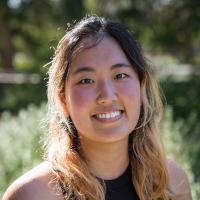
Hee Jin Chung
Animal Behavior
Project Title: Diagnostic Climate Survey within the Animal Behavior Graduate Group
I am a fourth-year Ph.D. candidate, and the co-chair of the Diversity, Equity, and Inclusion committee of the Animal Behavior Graduate Group. I study topics surrounding urban behavioral ecology, human-animal interactions, and animal welfare through the study system of domestic cats (Felis catus). I believe that scientists should contribute personally and intentionally to creating a more equitable and accessible scientific community. Our DEI committee holds monthly journal clubs, and plans to collaborate with The Ethogram, the official science communication blog of our graduate group, for outreach events. My 2023-24 project for the DEIJ Leader Fellowship focused on creating and distributing a climate survey for our graduate group, to get a better idea of the experiences of the current students. The climate survey will help us explore which circumstances within the graduate group may be most vulnerable to microaggressions and antagonistic interactions, and make attainable changes in recruitment and retention of students in the program.
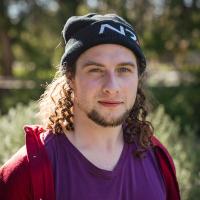
Elijah Kofke
Biochemistry, Molecular, Cellular and Developmental Biology
Project Title: Alumni Panel to Raise Visibility of Non-Academic Career Paths
I am a third-year graduate student, and I study how cells make decisions under stress. My exposure to DEI work came initially from my work as an academic researcher in my hometown of Boston, as well as from my passion for the performing arts, which often express deep rooted cultural inequalities. I am very involved in the graduate student community on campus, and serve as a DEI committee chair, help organize events for prospective students, and help run BMCDB’s monthly happy hour. With this DEIJ fellowship, I will plan BMCDB’s annual Spring Showcase, where I am responsible for putting together a panel of alumni from non-academic career paths. In addition to addressing a prior lack of visibility for these career paths with the event itself, I hope to organize a toolkit to help others create similar panels with minimal barriers, creating more opportunities for other students to start dialogues centered on their own passions.
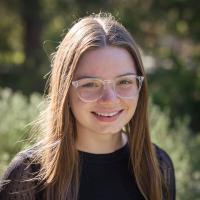
Tess Leathers
Biochemistry, Molecular, Cellular and Developmental Biology
Project Title: Making academia more accessible for early scientists
I’m a fourth year Ph.D. candidate studying embryonic development in the Rogers lab, and I’m passionate about making academia a place where all feel welcome. My project takes two approaches to make academia more accessible for scientists from historically underserved backgrounds. My first approach is to support early-stage graduate students in securing funding, as the financial burden of graduate school can be a huge obstacle. To do this, I organized a workshop in which former awardees gave feedback to over a dozen graduate students applying to the National Science Foundation Graduate Research Fellowship Program. The second approach is working with Prairie Elementary, a majority Hispanic student-serving school, to provide science activities for eight fourth- and fifth-grade classrooms. We started each session by sharing about our journey to become a scientist before leading a fun hands-on lesson and answering students’ questions. This event helped demystify academia for elementary students and showed them that they belong in STEM. Overall, I hope this project will help foster community and create opportunities for young scientists to grow their support network.
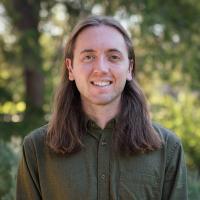
Devin Romines
Integrative Genetics and Genomics
Project Title: oSTEM Graduate Panel Series
I am a third-year Ph.D. student working in the Sundaresan Lab studying plant development. Seeing professors and people just like me making it in academia gave me the confidence that being a professor was something I could pursue. As a result, I want to make sure that I help those who come after me feel like they belong. Many undergraduate students in STEM are not fully aware of how applying for graduate school works. Showcasing this to underrepresented students, like LGBTQ+ students, can help them see that it is an attainable goal. As a DEIJ Leader Fellow, I plan to work with the graduate committee of Out in Science, Technology, Engineering, and Mathematics (oSTEM) at UC Davis to create a monthly panel/speaker series about preparing for, applying to, and selecting between graduate school programs. This series would allow graduate students to engage with undergraduates and share their journeys through graduate school. The goal of this project is not only to provide LGBTQ+ undergraduate STEM students with valuable information and connections, but also to provide CBS graduate students with outreach and speaking opportunities to share their knowledge and experience.
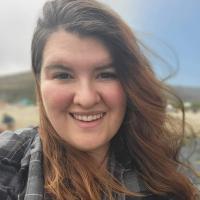
Darien Satterfield
Population Biology
Project Title: Planning Ethical, Inclusive, and Culturally Aware Field Work
I am a fifth-year Ph.D. candidate studying the functional morphology of coral reef fish. As a fellow, my goal is to broaden the available training on how to lead field work that is inclusive and ethical by outlining necessary steps from the project design stages, all the way through visiting a remote area and then completing the project. Too often research happens exclusively within the bubble of academia, which can disadvantage underrepresented groups resulting in a lack of diverse perspectives, backgrounds, and skill sets. When designing field work, researchers have a chance to contribute to the dismantling of the barriers to science many from underserved groups face. By creating safe and welcoming field work policies, extending research opportunities to a broader network of scientists and community members, and listening to the traditional knowledge and values that surround our study system, our science becomes more informed, efficient, and impactful. The workshop I am creating will include lessons learned from those who have led successful field work collaborations and a blueprint for planning field work that is inclusive.
